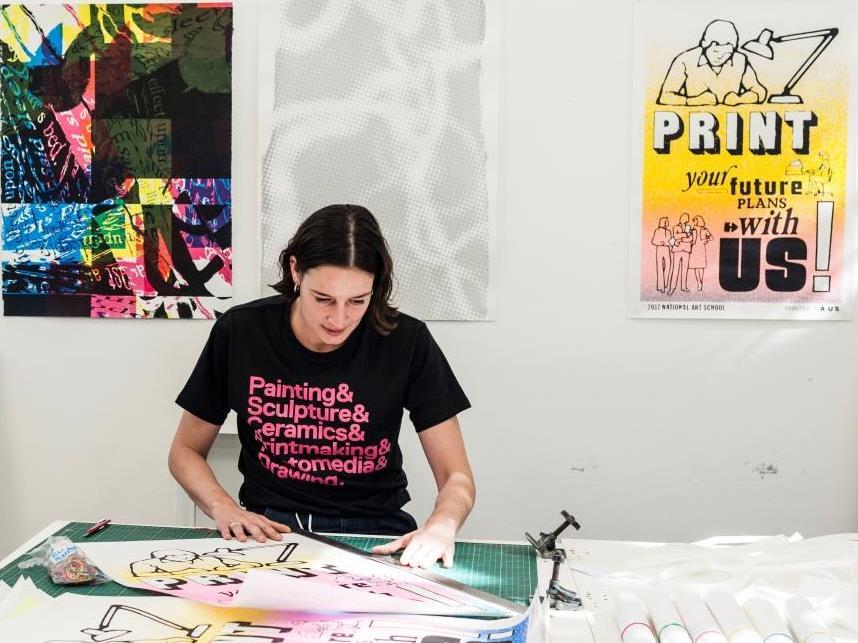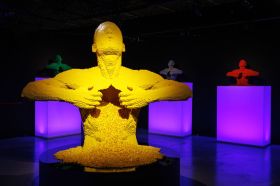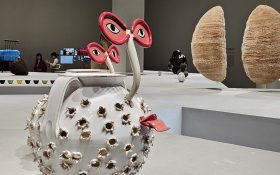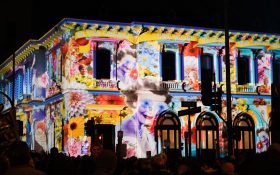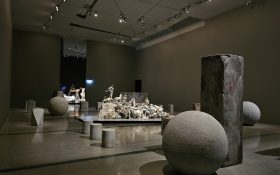Having a studio-based practice is one of the National Art School’s key philosophies. Image supplied.
Whether your goal is a career change, the completion of a short course, or to become a professional artist, the National Art School (NAS) offers an emphasis on the one thing that will help you get there: solid studio time.
‘One distinctive feature of the school is our focus on studio practice, so that’s the way our programs are structured and also the way we operate,’ said Simon Cooper, Head of Studies at the National Art School.
‘The centrality of practice is a really important part of the learning experience at the school and we support that by having a lot of studio-based engagement that is supported by small class sizes and high contact hours to ensure that students are getting the mentorship they need on a one-on-one basis, not just in a group.’
With a maximum of 600 full time students, the school operates more like a conservatorium than a university, creating increased opportunities for guidance, feedback and discussion, with teachers helping students grow quickly towards artistic independence.
‘There’s a great sense of a community of practice here because students challenge and push each other along and it’s this cohort that’s really important to your development as an artist,’ said Cooper.
The school’s forthcoming Open Day on 7th September will allow potential artists to experience its dynamic, collaborative and supportive environment through interactive workshops, screenprinting and life drawing, a live bronze pour, and the opportunity to gain advice about study options.
‘Our Open Day is like a backstage pass in a way because you’re actually able to see working studios as well as talk to staff and students at the school,’ Cooper said.
NAS offers levels of study for every kind of student including a Bachelor of Fine Art, Master of Fine Art, Doctor of Fine Art as well as short courses for more flexible study options. The cohort is diverse including school leavers, postgraduates and mature-aged students whose goals and ambitions vary.
‘We’ve got alumni who have enjoyed the conventional success you would expect coming from an institution like this, such as winning the Archibald Prize,’ Cooper said. ‘But you’re also seeing some students, such as those doing the BFA, build really interesting careers within the visual arts through admin roles that are having an impact on the sector.’
According to Cooper, students are thrust into a very dynamic, inspiring environment, which is anything but a monoculture. It’s a place that aims to motivate students, not just in the studio, but long after they’ve left. Its success is very much a testament to the teachers.
‘All the teaching staff who work with students in the studio are themselves practicing artists, that’s a really important emphasis for us. They’re artists who teach not teachers who are artists,’ he said.
‘And that’s an important aspect of what we’re trying to do with the program, which is to build the professional capacity of the students when they graduate – that they’re ready to go and be an artist and have some sort of impact and get their voice heard.’
Get your backstage pass to the National Art School at its Open Day on 7th September from 10am-4pm.
